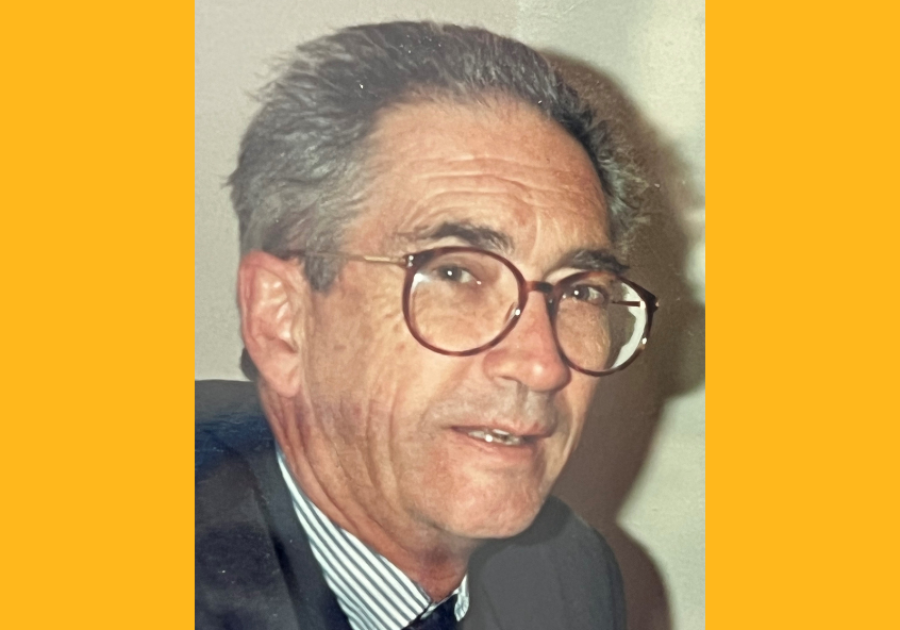Obituary: Anthony Bryceson
1 August 2023 London School of Hygiene & Tropical Medicine London School of Hygiene & Tropical Medicine https://lshtm.ac.uk/themes/custom/lshtm/images/lshtm-logo-black.png
It is with great sadness that we share the news that Dr Anthony Bryceson, who worked as a lecturer and professor at the London School of Hygiene & Tropical Medicine (LSHTM) for many years during a distinguished career in tropical medicine, has died aged 88.
In this obituary, LSHTM Professor David Mabey pays tribute to Anthony and highlights his many contributions to public health.
Anthony Bryceson was a Professor of Tropical Medicine at LSHTM and Consultant Physician at the Hospital for Tropical Diseases (HTD) from 1974 until he retired in 2000. He died on 19 July in Cairns, Australia.
Born in Kohat, now in Khyber Pakhtunkhwa, Pakistan, where his father was a British army officer, he was educated at Winchester College, Christ’s College Cambridge and Westminster Medical School.
In 1961 he took the Professional Diploma in Tropical Medicine & Hygiene course (DTM&H) at LSHTM in preparation for work in Laos in 1961-3. This was supported by the British government’s Commonwealth Relations Office under the Colombo plan as an alternative to military service. The experience kindled a lifelong interest in tropical medicine that was not diminished when he and another young doctor, Colin Prentice, were taken prisoner by Pathet Lao communist rebels in 1962, and held in the jungle for 33 days. They managed to develop amicable relations with their captors – Colin played chess with the leader, while Anthony taught them to play cricket. They were eventually set free after a new coalition government was formed in Laos.
Anthony returned to the UK in 1964. He became a medical registrar at the HTD in London but then took up an opportunity to become Assistant Professor at Haile Selassie I University, Addis Ababa, Ethiopia from 1965-7. There, he developed his principal career research interest in leishmaniasis, working with Bill Bray, Aklilu Lemma, Pat Preston and others. He established a clinical and immunological classification that had similarities to leprosy. In 1968, he returned to Ethiopia to investigate with colleagues including Eldryd Parry and David Warrell the potentially fatal Jarisch-Herxheimer reaction in louse-borne relapsing fever.
In 1969, when Eldryd was appointed Professor of Medicine at Ahmadu Bello University in Zaria, Nigeria, he persuaded Anthony (along with LSHTM’s Professor Sir Brian Greenwood among others) to help him and the Dean, Harold Scarborough, set up a new medical school. Other enthusiastic young doctors joined them, notably David Warrell, Hilton Whittle, Neil Davidson and Peter Tugwell, leading to ground-breaking research on meningitis, pneumonia, malaria, rabies, sleeping sickness, onchocerciasis, peri-partum cardiac failure, snakebite and other diseases. The highlight of student teaching at Ahmadu Bello University was the superb leprosy course organised by Anthony and missionary surgeon/leprologist Roy Pfaltzgraff at Garkida.
On returning to the UK in 1974, Anthony was appointed Consultant Physician at HTD and Senior Lecturer at LSHTM (Professor in 1996), where he remained until his retirement. During this time, he established an outstanding international reputation as physician, dermatologist (St John's Hospital for Diseases of the Skin 1976-95), teacher, organiser of the DTM&H course (1996-2000), and researcher. He became a world authority (WHO expert committee member) on leishmaniasis, leprosy, trypanosomiasis, onchocerciasis and filariasis.
After his retirement he moved to Australia to spend more time with his family and grandchildren, where he remained actively involved in medicine.
Anthony’s modesty, courtesy, supreme clinical skills and experience, and willingness to spend time explaining complex pathogenesis and management protocols, endeared him to generations of students. These qualities inspired enormous admiration and affection among his colleagues, while his friends and guests had the privilege of enjoying Anthony and his wife Ulla’s generous hospitality.
He is survived by his wife Ulla, his children William and Maia and grandchildren.